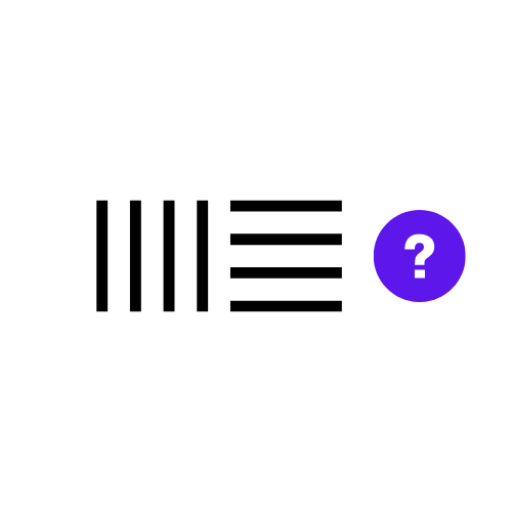Scientific Writing Assistant-AI-powered academic writing support.
Elevate your scientific writing with AI.
Supports users with writing scientific papers by reviewing and improving any given text or writing text drafts based on bullet points.
How can I make my research paper's introduction more engaging?
What's the best way to present data in my study?
Can you help me rephrase this scientific argument?
How do I effectively conclude my research paper?
Related Tools

👌Academic Assistant Pro
Professional academic assistant with a professorial touch

Research Paper Writing
Expert in crafting high-standard research papers.

论文写作助手
还在为论文发愁吗?快来试试论文代写助手吧!
Academic Writting
To write exact academic content

超级论文辅助(Super Academic Paper Assistance)
提出你的论文主题 我将为你提供论文大纲,并询问是否需要修改 若大纲无需修改,直接命令我开始编写 最后我将给你一个论文链接 (⚠️如果出现action报错的情况,说明该角色暂时用不了,到寒假的时候才会彻底解决,非常抱歉。⌛️)

论文助手
改写 润色 降重 一个小程序解决!
20.0 / 5 (200 votes)
Overview of the Scientific Writing Assistant
The Scientific Writing Assistant is a specialized tool designed to support the development and refinement of academic and scientific writing. Built on advanced AI technology, it aims to enhance the quality, clarity, and precision of scientific texts, making them suitable for publication or academic use. The assistant is capable of both reviewing existing documents and generating new content based on provided input. Its primary purpose is to assist researchers, students, and professionals in producing well-structured, coherent, and impactful scientific documents. For example, a researcher working on a manuscript can use the assistant to improve the articulation of complex ideas, ensuring that the language is both precise and accessible. Alternatively, a student might use the assistant to draft sections of a thesis, receiving guidance on how to structure arguments and cite sources correctly. The tool is not meant to replace human expertise but rather to augment it, offering suggestions and feedback that can help elevate the quality of the final document.

Core Functions of the Scientific Writing Assistant
Text Improvement and Editing
Example
A researcher has drafted a discussion section of a paper but struggles with making the argument flow logically. The Scientific Writing Assistant can analyze the text, suggest revisions for better coherence, propose alternative phrasing for clarity, and identify any grammatical or stylistic errors.
Scenario
In a scenario where a researcher's first language isn't English, they might produce text that is technically correct but awkward in phrasing. The assistant can help smooth out these rough edges, ensuring the paper meets the language standards required for publication in high-impact journals.
Content Generation and Structuring
Example
A PhD student needs to write a literature review but is unsure how to structure the information logically. By providing key points and references, the student can use the assistant to draft a well-organized review that integrates relevant literature and highlights critical themes.
Scenario
In a real-world situation, a student at the beginning of their thesis might have gathered substantial literature but struggles with how to start writing. The assistant can help by generating an initial draft, offering a framework that the student can then refine and expand upon.
Citation and Reference Management
Example
An author is preparing a manuscript for submission and needs to ensure that all citations are correctly formatted according to the target journal’s guidelines. The Scientific Writing Assistant can automatically format in-text citations and generate a reference list in the required style.
Scenario
A researcher is writing for a journal that requires APA style citations, but their original document was prepared in Chicago style. The assistant can convert all references to the correct format, saving significant time and reducing the likelihood of errors.
Target Users of the Scientific Writing Assistant
Researchers and Academics
This group includes scientists, researchers, and academic professionals who are regularly involved in writing and publishing scientific papers, grant proposals, and reviews. They benefit from the assistant’s ability to enhance the clarity, precision, and overall quality of their writing, ensuring that their work meets the rigorous standards of peer-reviewed journals. The assistant helps streamline the writing process, allowing these users to focus on the content and implications of their research rather than the minutiae of language and style.
Graduate and Undergraduate Students
Students working on theses, dissertations, or term papers represent another key user group. They often face challenges in structuring their work, adhering to academic writing conventions, and properly citing sources. The assistant provides invaluable support by guiding students through the process of drafting, editing, and finalizing their documents, helping them achieve higher academic standards and reducing the stress associated with scientific writing.

How to Use the Scientific Writing Assistant
Visit aichatonline.org for a free trial without login, also no need for ChatGPT Plus.
Access the Scientific Writing Assistant without any hassle. No account or payment is necessary to start using it.
Prepare your scientific text or bullet points.
Before you begin, have your text, draft, or ideas ready. The assistant can enhance, revise, or generate text based on your input.
Input your text or queries into the assistant.
Paste your content into the assistant's interface, or type your specific questions. You can ask for text improvement, drafting help, or feedback on your writing.
Review and apply the suggestions provided.
Carefully go through the revisions and suggestions offered. The assistant will help refine your writing, ensuring clarity, precision, and academic integrity.
Iterate and finalize your document.
Make further adjustments as needed, and use the assistant to fine-tune your document until it meets your expectations.
Try other advanced and practical GPTs
Scientific Article Summarizer
AI-powered tool for precise scientific summaries.

Progress Note
AI-powered therapy note generation tool.

Hand-drawn illustration GPT
AI-powered doodle creator for everyone

Meeting Summary and Action Item Specialist
AI-powered summaries and action items in seconds.

Theory of Computation
AI-powered insights into computation theory.

Music Theory
AI-powered music theory insights.

Scientific Paper Writer
AI-Powered Writing for Scientific Excellence

Ableton Live (All Versions) - Ultimate Assistant
Your AI-Powered Guide to Mastering Ableton Live.

Economic Educator
AI-powered tool for mastering economics

Marbas
Unleash the Power of AI in Magic

Mental Health Therapist
AI-powered SOAP note generation for therapists

EPB, OPB, Dec, Award Writer - Speech Pro AF
AI-driven performance, awards, and speech writing made easy.

- Research Papers
- Thesis Writing
- Grant Proposals
- Literature Reviews
- Abstracts
Frequently Asked Questions About the Scientific Writing Assistant
What types of documents can the Scientific Writing Assistant help with?
The assistant can aid in various scientific documents, including research papers, thesis chapters, grant proposals, abstracts, and literature reviews. It is versatile enough to cater to different disciplines and writing needs.
How does the Scientific Writing Assistant improve my writing?
It enhances clarity, precision, and overall quality by suggesting improvements in sentence structure, terminology, and argumentation. It also ensures adherence to academic standards and helps avoid common writing pitfalls.
Can the assistant help with non-English scientific writing?
Yes, it supports multiple languages, providing guidance on structure, grammar, and terminology, tailored to different linguistic contexts.
Is the Scientific Writing Assistant suitable for beginners?
Absolutely. The assistant is designed to be helpful for all levels, from novice researchers to experienced academics, offering customized support according to the user’s expertise.
What should I do if I need more specialized feedback?
For highly specialized content, the assistant complements peer review but does not replace it. It's recommended to use the assistant alongside feedback from subject matter experts.